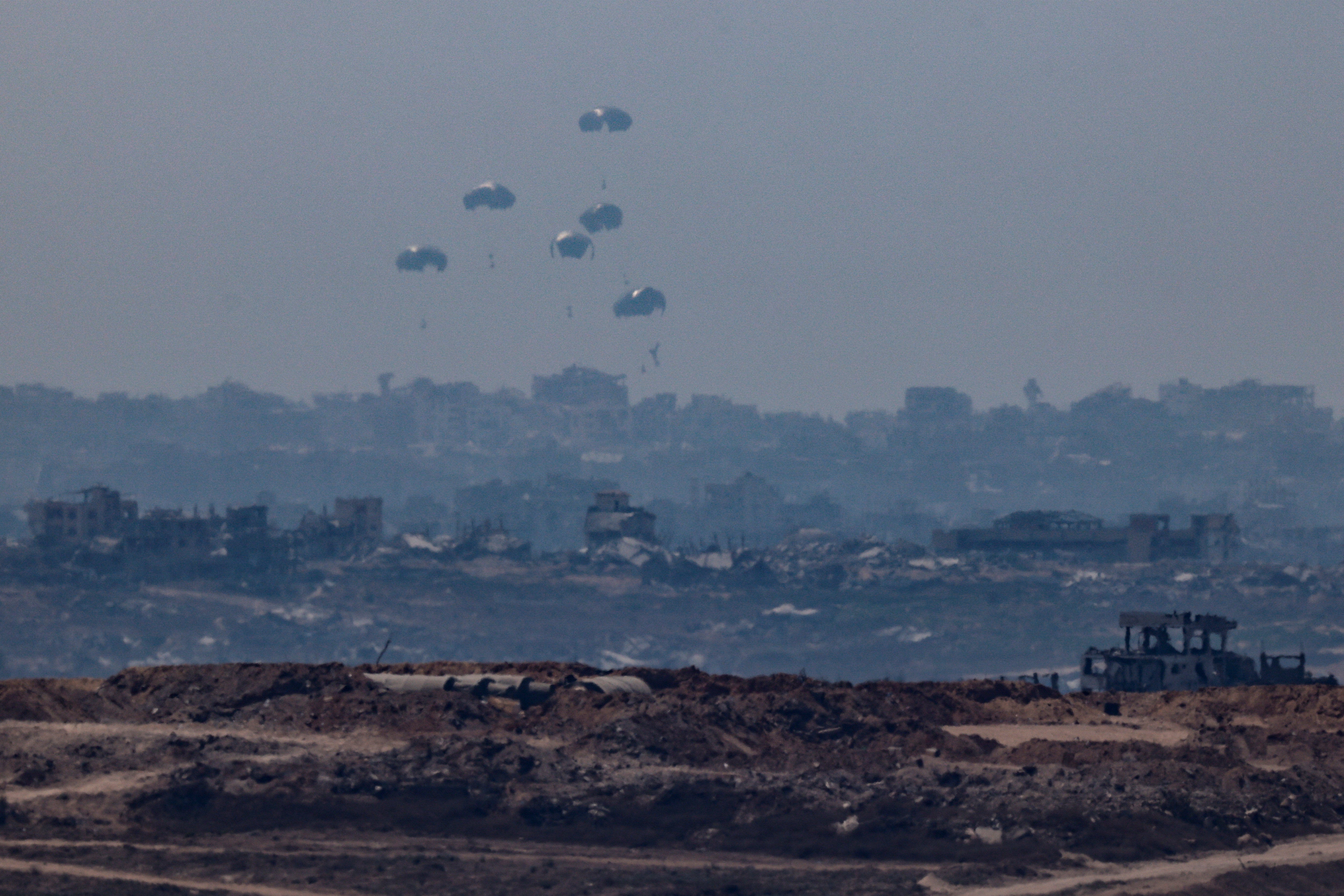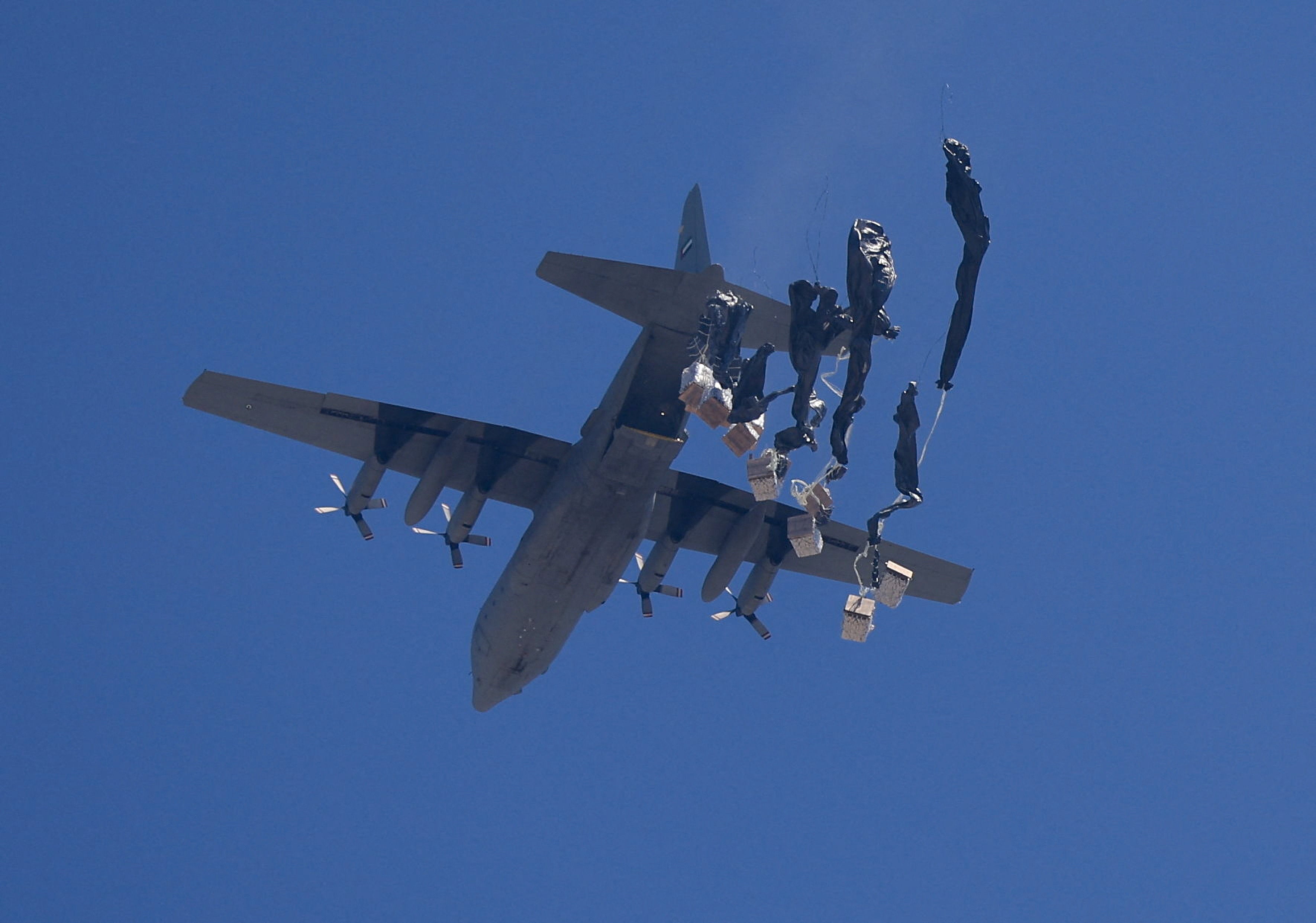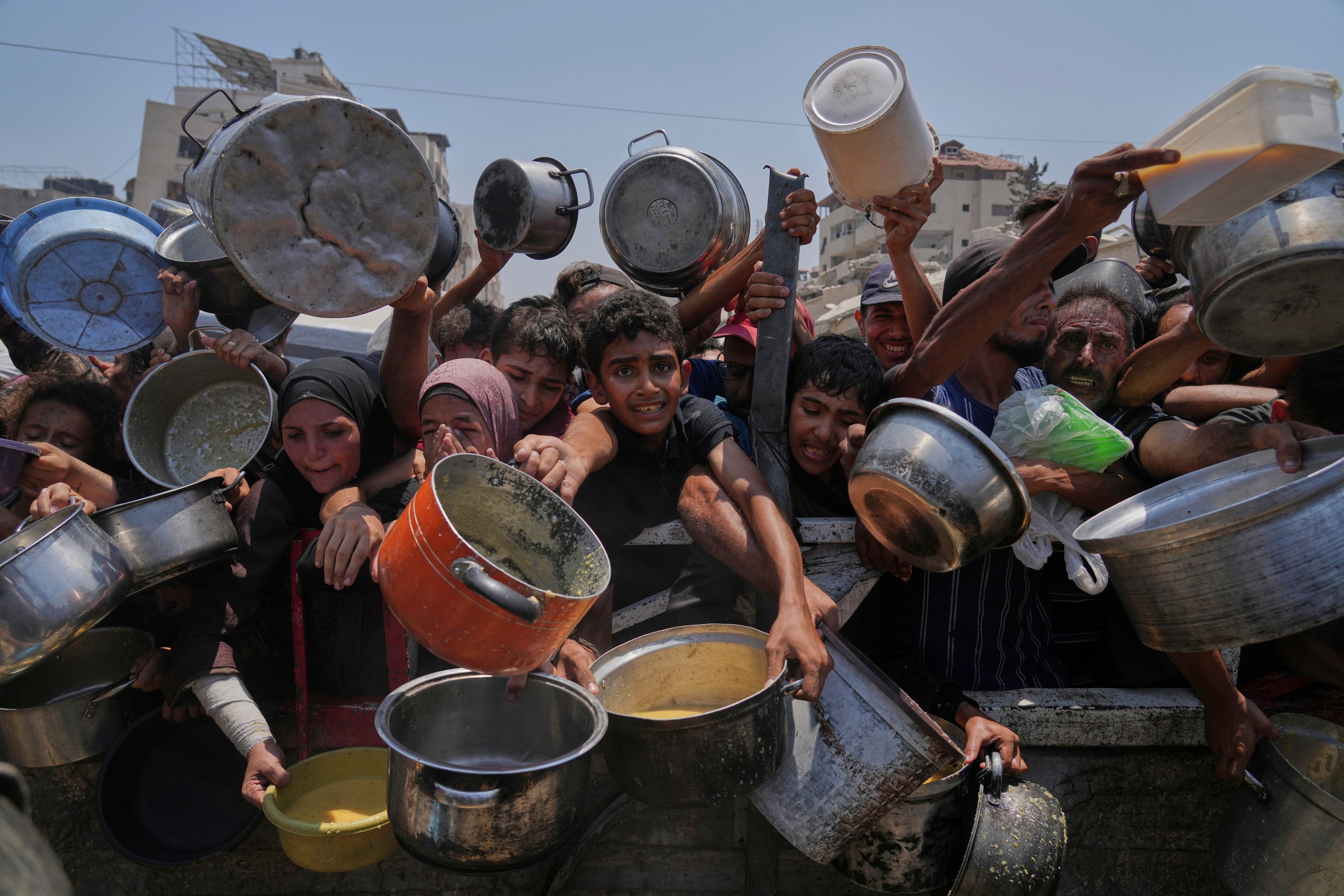Israel announces ‘tactical pause’ in fighting as Jordan and UAE begin aid drops into starving Gaza

Jordan and the United Arab Emirates have parachuted aid into the Gaza Strip as the humanitarian crisis in the besieged territory deepens.
Israel said on Sunday that it would halt military operations each day for 10 hours in parts of Gaza and allow new aid corridors into the strip. Israel has been facing growing international criticism over the humanitarian crisis in Gaza, as images of starving Palestinians have alarmed the world.
Foreign Secretary David Lammy welcomed the pause but said it was “long overdue” and called for land routes to be opened urgently, warning that air drops alone “cannot alleviate the needs of those desperately suffering in Gaza”.

Military activity will stop from 10am to 8pm until further notice in al-Mawasi, a designated humanitarian area that stretches along the coast, as well as in the central city of Deir al-Balah, and in Gaza City, to the north.
The military said designated secure routes for convoys delivering food and medicine will also be in place between 6am and 11pm, starting from Sunday.
Jordan and the UAE delivered 25 tonnes of aid by parachute in the first airdrop in months. Palestinian health officials in Gaza City said at least 10 people were injured by falling aid boxes.
The Egyptian Red Crescent also said it was sending more than 100 trucks carrying 1,200 metric tonnes of food to southern Gaza.
Aid groups have warned of mass hunger among Gaza’s 2.2 million people, and international alarm has grown.
The United Nations food agency welcomed the steps to ease aid restrictions, but said that a broader ceasefire is needed to ensure that the goods reach everyone in need. Unicef called it “an opportunity to save lives”.

The World Food Programme said the pause could allow a surge of urgently needed food aid. It added on X that it has enough food already in or on its way to the region to feed Gaza’s population for almost three months.
Dr Muneer al-Boursh, the director general of Gaza’s health ministry, called for a flood of medical supplies and other goods to help treat child malnutrition.
“This [humanitarian] truce will mean nothing if it doesn’t turn into a real opportunity to save lives,” he said. “Every delay is measured by another funeral.”
UN aid chief Tom Fletcher said staff would step up efforts to feed the hungry during the pauses in the designated areas.
“Our teams on the ground … will do all we can to reach as many starving people as we can in this window,” he said in a post on X, formerly Twitter.

Meanwhile, health officials at al-Awda and al-Aqsa Hospitals in Gaza said Israeli firing had killed at least 17 people and wounded 50 people waiting for aid trucks on Sunday. The Israeli military did not immediately respond to a request for comment.
Dozens of Palestinians have died of malnutrition in recent weeks, according to officials in the Hamas-run territory. The Gaza health ministry reported six new deaths over the past 24 hours due to malnutrition, bringing the total number of deaths from malnutrition and hunger to 133, including 87 children.
Israel is facing increased international pressure to end the catastrophic humanitarian crisis in Gaza, after US-led peace talks in Qatar were cut short on Thursday.
Washington’s special envoy Steve Witkoff accused Hamas of having a “lack of desire to reach a ceasefire”.
The deal under discussion is expected to include a 60-day ceasefire in which Hamas would release 10 living hostages, and the remains of 18 others, in phases, in exchange for Palestinians imprisoned by Israel.
Aid supplies would be ramped up under the deal, and the two sides would negotiate towards a lasting truce.
Israel, which halted aid in March before partially reopening it in May under new restrictions, insists it must control shipments to prevent them from being diverted by militants.
